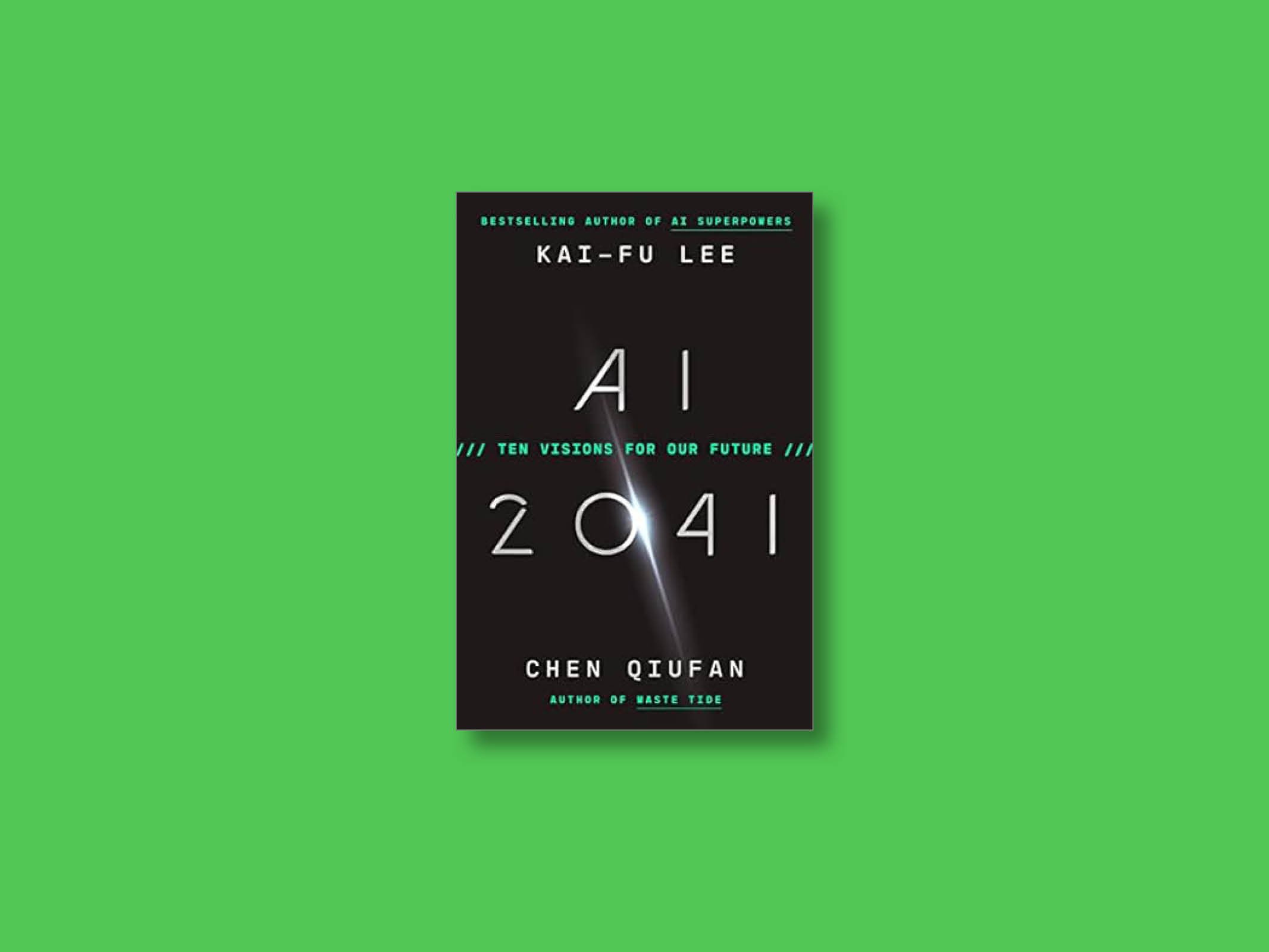AI 2041: Ten Visions for Our Future, by Kai-Fu Lee and Chen Qiufan
Robin’s head was spinning. Hacking their account would require four thousand qubits of computing power. “How is this possible? There’s no such machine on Earth…”
All the screens in their hideaway dimmed at the same time. There was only the buzz of electrical current as no one spoke.
“It’s over.” Lee signed, his expression wooden.
The lines above set the scene of a catastrophic heist in 2041 that uses quantum computing to steal bitcoins sealed in a historic vulnerable key from back in the early 2020s. The book, titled, AI 2041: Ten Visions for Our Future, by Kai-Fu Lee and Chen Qiufan is an engaging and thought-provoking read that uses both story and analysis to sketch out ten stories that illustrate ways that artificial intelligence (AI) could sculpt our world over the next two decades.
Each story is set in a different corner of the globe and addresses a few aspects of how AI could impact our lives. Rather than the doomsday scenario often associated with future-thinking related to AI, these tales reveal both risks and also ways that human interaction with AI can overcome the challenges. Concepts explored include custom education and even friends for children; new forms of currency and attribution of value; risks related to personal data, history, and bias; self-driving vehicles; a transformed robotic and human workforce; potential ways that single bad actors could wreak havoc, and more. After each tale authored by Chen Quifan, Kai-Fu Lee unpacks the technical capabilities of AI and how they could develop over the next few decades.
Published in 2021, amidst the pandemic and before AI's surge into public and business spheres, this book is bold and insightful. And yet, just two years later, many of the future possibilities anticipated for 2041 are already available today. The capabilities of AI and computing capacity have developed more rapidly, even since 2021, than the authors envisioned.
For instance, the book contemplates a world in 2041 where a young adult seeking to work in finance is devastated and surprised to discover that AI could prepare a company profile as well as an analyst could – something that would hardly make my current 17-year-old blink today. It’s a sobering realization that some of the world’s deepest thinkers about AI had dramatically underestimated how quickly its capabilities would advance.
As I stand at this metaphorical base camp of a new age, our calling in the healthcare industry has never been more profound. At Spring Street Exchange, we work with clients in driving change in healthcare, that keep values around equity, fairness, quality, and consumer-centricity at the core. Because healthcare has been slower to evolve than other sectors of the economy, the industry is likely to face an especially transformative period in the years to come. We have an opportunity and responsibility to ensure that the capabilities of new tech reach and enhance the lives of those who are too often left behind. Our goal can be not just to create greater efficiency of our current model, but to sculpt a better and more equitable future that this tech enables.
At Spring Street, where we delve deep into scenario planning and future visioning, our aim is never to predict but to explore. I loved how Kai-Fu Lee and Chen Qiufan chose to envision the future with a focus on us all as authors and creators rather than just passive observers. Although the authors highlight risks, the book is also infused with visions of how AI and new technology can be used to address inequities and drive toward a greater good for all.
If much of what these authors expected to occur in 2041 is already just around the corner, we have a lot of work to do. A first step could include our visioning workshops that can be experienced by executive teams and boards to explore some of the near and long-term new tech and changes on the horizon. ‘Trying on the future’ as these authors do, creates a profound sense of interest and urgency in addressing the opportunities before us.
Till we talk next,
Nancy

